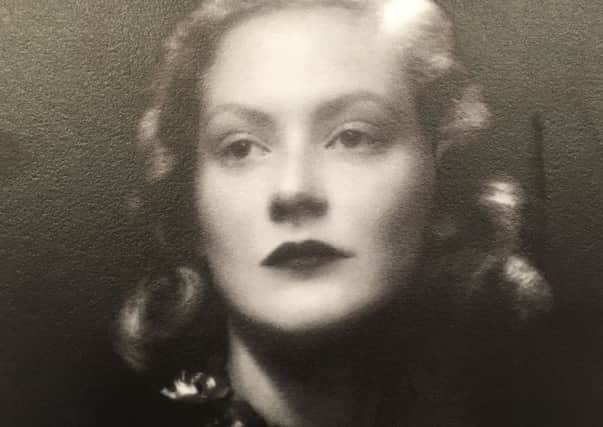Grania Maeve Rosaura, Dowager Marchioness of Normanby


A descendant of the Guinness brewing family – her grandfather was Lord Iveagh – she married in 1951 the philanthropist Oswald Phipps, fourth Marquess of Normanby, and made her life at the family seat of Mulgrave near Whitby, whose old castle and gardens she helped restore.
A promising ballerina in her youth, she had trained under the Russian choreographer Legat, but the war, and the loss of her mother to cancer, intervened.
Advertisement
Hide AdAdvertisement
Hide AdAt home in Grosvenor Place, close to Buckingham Palace, a bomb blew her bedroom shutters across the room. Her father gave over the house for the use of Polish officers and she found herself on the family estate on the Sussex coast, taking pistol-shooting lessons from him – until he was sent to the Middle East by his friend and ally, Winston Churchill.
Joining the Women’s Auxiliary Air Force, she was put to work analysing photographs from reconnaissance planes of German military installations. On the 50th anniversary of the Battle of Britain, she watched the flypast over London and could still identify the old RAF aircraft, though, as she admitted, she was better at spotting the German ones.
However, her war was to end tragically. The assassination of her father sent shockwaves through Palestine and the rest of the world and, in the view of many, set back the Zionist cause considerably.
The trauma stayed with Grania through her life. She and her brother, Bryan, established in his memory the Moyne Institute at Trinity College, Dublin. She maintained lifelong links with Trinity, and served as a pro-Chancellor of the university.
Advertisement
Hide AdAdvertisement
Hide AdHaving inherited from her father the Bailiffscourt Estate in Sussex, she now acquired a herd of Ayrshire cows, and began an enduring association with farming.
She had known Lord Normanby before the war and had stayed at Mulgrave, in which his family had been established since the 18th century. But in the years since their last meeting, he had been captured at Dunkirk and held as a PoW until 1943, during which time he had persuaded his German captors to let him teach Braille to the blind prisoners, despite not knowing it himself.
After the hostilities, he and Grania became inseparable, dividing their time between the Yorkshire coast and a holiday home on Barbados, which they occupied, by themselves, for a month at a time.
Once married, she adopted Yorkshire, lock, stock and cricket team. She loved the woods and the moors, and hosted shooting parties on the estate. She and Lord Normanby also bought the Warter Priory estate, deep in the Wolds of East Yorkshire, a property later sold by her son.
Advertisement
Hide AdAdvertisement
Hide AdShe became fascinated by the explorer Captain James Cook, and bought the house in Whitby where he had lived as an apprentice, in order to create the museum about him which thrives today. In its early days, she collected the exhibits and designed the layout.
She also became a magistrate, sitting on the Whitby bench for many years, while at the same time involving herself in charity work and supporting her husband in his duties as Lord Lieutenant of the North Riding of Yorkshire.
Her great love at Mulgrave was its magnificent estate. She and her husband created “rooms” at the bottom end of the walled garden, and both the spring and autumn gardens remain as she designed them. They are open to the public on certain dates.
Her husband, who had, before becoming a crossbencher, been the only Labour marquess in the Lords, died in 1994, having fallen ill during a Royal visit. In the years that followed, Grania, who had been brought up an Anglican, converted to Catholicism and embarked on one last history project, commemorating the life of the martyred 17th century priest Nicholas Postgate, who was executed on the Knavesmire in York during a wave of anti-Catholic sentiment sweeping the country. At St Hedda’s Church in Egton Bridge, just inland from Mulgrave and Whitby, she commissioned a stained-glass window in his honour.
She had seven children, including the novelist Constantine Phipps, the fifth Marquess of Normanby, and is survived by her extended family of grandchildren and great-grandchildren.